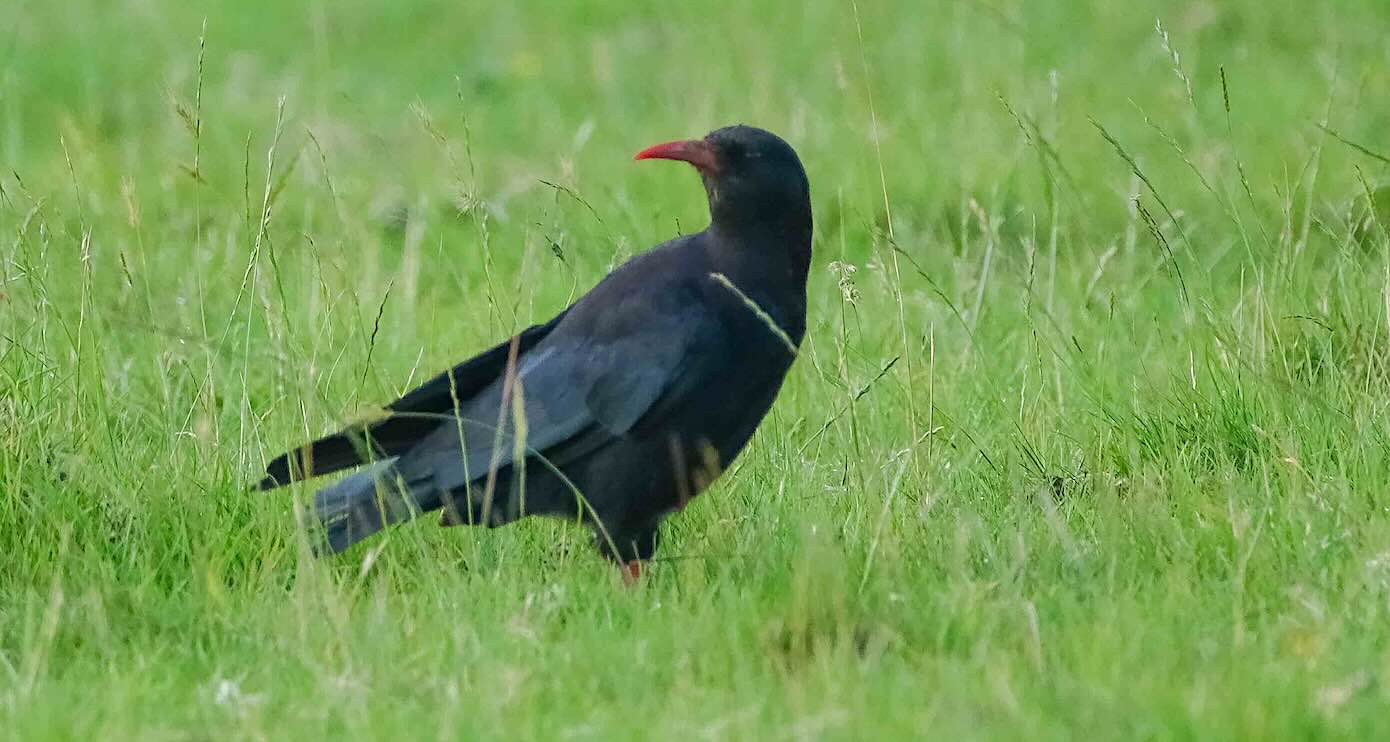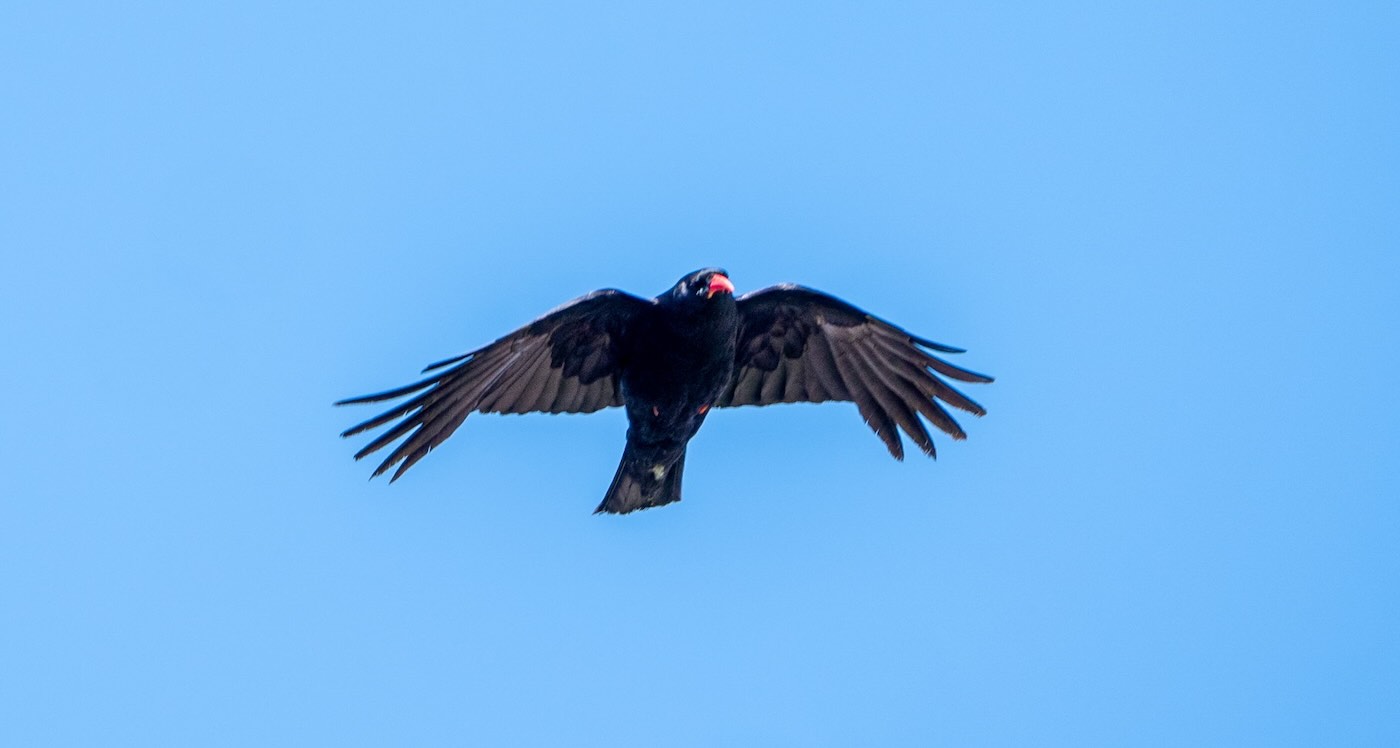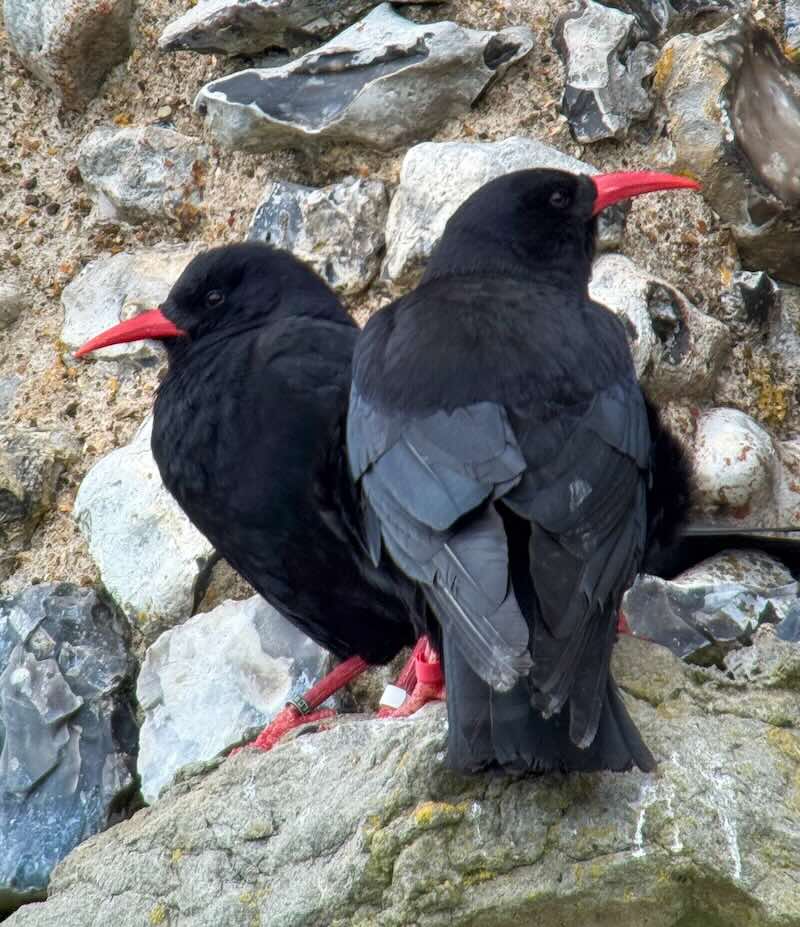Historic Moment As Red-Billed Bird Takes To The Skies For First Time In 200 Years–A Win For Chough Species In England

A wild-born red-billed chough (CHUF) has taken to the skies in South East England for the first time in over 200 years.
The young chough took flight from a wild nest in Dover, marking the first time in more than two centuries that the bird has lived independently in the wild in Kent.
Liz Corry, the Chough Release Supervisor at Wildwood Trust, says the fledging is a powerful indicator that the species is starting to re-establish itself naturally in the region.
“This is a moment we’ve all been hoping for. To see a wild chick not only hatch but fledge and take to the skies is a major step forward.
“It confirms that the birds are finding suitable nesting habitat, and pairing up to raise young—exactly what we’ve been working towards.”
Once a familiar sight in Kent, the red-billed chough vanished from the county more than 200 years ago, due mostly to habitat loss.
Its cultural ties to the region endure—most famously on the coat-of-arms of Canterbury, and in the legend of Thomas Becket, where it’s said the bird’s red beak and legs were stained by the martyr’s blood.

Earlier this spring, a nest was discovered at Dover Castle that produced the chick which successfully fledged last month.
Conservationists say this “remarkable” milestone comes just three years after the launch of an ambitious reintroduction program, led by Wildwood Trust, Kent Wildlife Trust, and Paradise Park.
The project’s five-year plan is to introduce up to 50 birds to the South East region.
The Kent population is also part of a broader strategy to link up chough populations across southern England—being overseen by a collaborative steering group involving Natural England and other conservationists.
They explained how decades of work to restore and manage vital chalk grassland habitat in East Kent have laid the foundation for this species’ return. Kent Wildlife Trust has worked closely with landowners and partners including the National Trust and White Cliffs Countryside Partnership to bring grazing areas back to the region, creating the ideal conditions for the birds—which are in the crow family—to forage and breed.
TWEET THIS GREAT NEWS: UK Zoo Helps Hatch Three of World’s Rarest Birds–Blue-Eyed Doves–with Only 11 Left in Wild

“This project shows what’s possible when long-term habitat restoration meets ambitious species recovery,” said Paul Hadaway, Director of Conservation and Engagement at Kent Wildlife Trust.
“A thriving chough population in Kent not only revives a lost species, it also proves the value of restoring rare habitats like chalk grassland, which are vital for a huge range of wildlife.”
Chalk grassland is among the most biodiverse habitats in the UK, supporting rich communities of wildflowers and invertebrates. The insects and larvae found in dung from grazing animals are a crucial food source for choughs during the breeding season.
LOOK: First Egg Laid in the Wild by Guam Kingfishers in 40 Years–Hanging on to Survival Thousands of Miles from Home
The project was funded by the Natural England Species Recovery Capital Grant Programme for 18 months until March this year, alongside conservationists and donors who have contributed to the Chough Appeal launched by Kent Wildlife Trust, which has brought in significant funding to help the project continue.



Please be good and do not spam. Thank you.